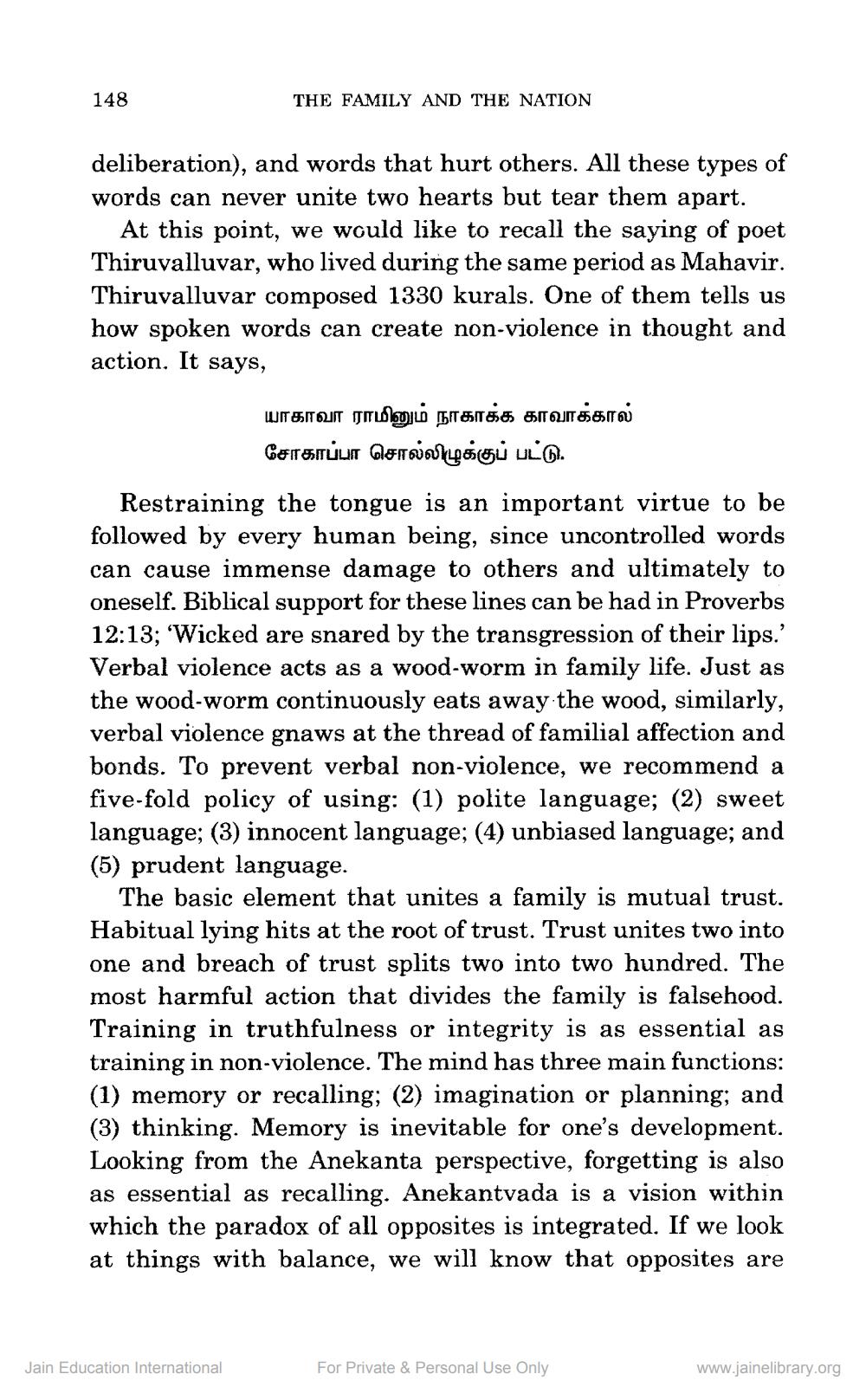________________
148
THE FAMILY AND THE NATION
deliberation), and words that hurt others. All these types of words can never unite two hearts but tear them apart.
At this point, we would like to recall the saying of poet Thiruvalluvar, who lived during the same period as Mahavir. Thiruvalluvar composed 1330 kurals. One of them tells us how spoken words can create non-violence in thought and action. It says,
யாகாவா ராமினும் நாகாக்க காவாக்கால்
சோகாப்பா சொல்லிழுக்குப் பட்டு. Restraining the tongue is an important virtue to be followed by every human being, since uncontrolled words can cause immense damage to others and ultimately to oneself. Biblical support for these lines can be had in Proverbs 12:13; 'Wicked are snared by the transgression of their lips.' Verbal violence acts as a wood-worm in family life. Just as the wood-worm continuously eats away the wood, similarly, verbal violence gnaws at the thread of familial affection and bonds. To prevent verbal non-violence, we recommend a five-fold policy of using: (1) polite language; (2) sweet language; (3) innocent language; (4) unbiased language; and (5) prudent language.
The basic element that unites a family is mutual trust. Habitual lying hits at the root of trust. Trust unites two into one and breach of trust splits two into two hundred. The most harmful action that divides the family is falsehood. Training in truthfulness or integrity is as essential as training in non-violence. The mind has three main functions: (1) memory or recalling; (2) imagination or planning; and (3) thinking. Memory is inevitable for one's development. Looking from the Anekanta perspective, forgetting is also as essential as recalling. Anekantvada is a vision within which the paradox of all opposites is integrated. If we look at things with balance, we will know that opposites are
Jain Education International
For Private & Personal Use Only
www.jainelibrary.org




